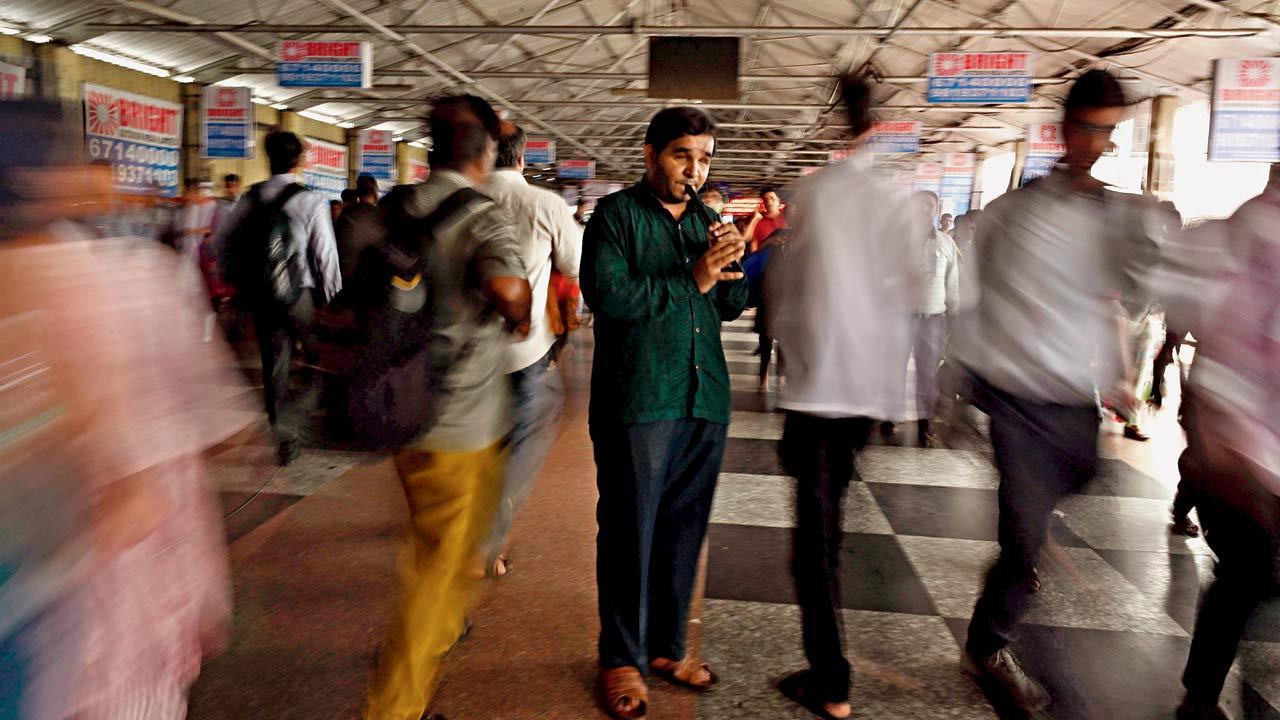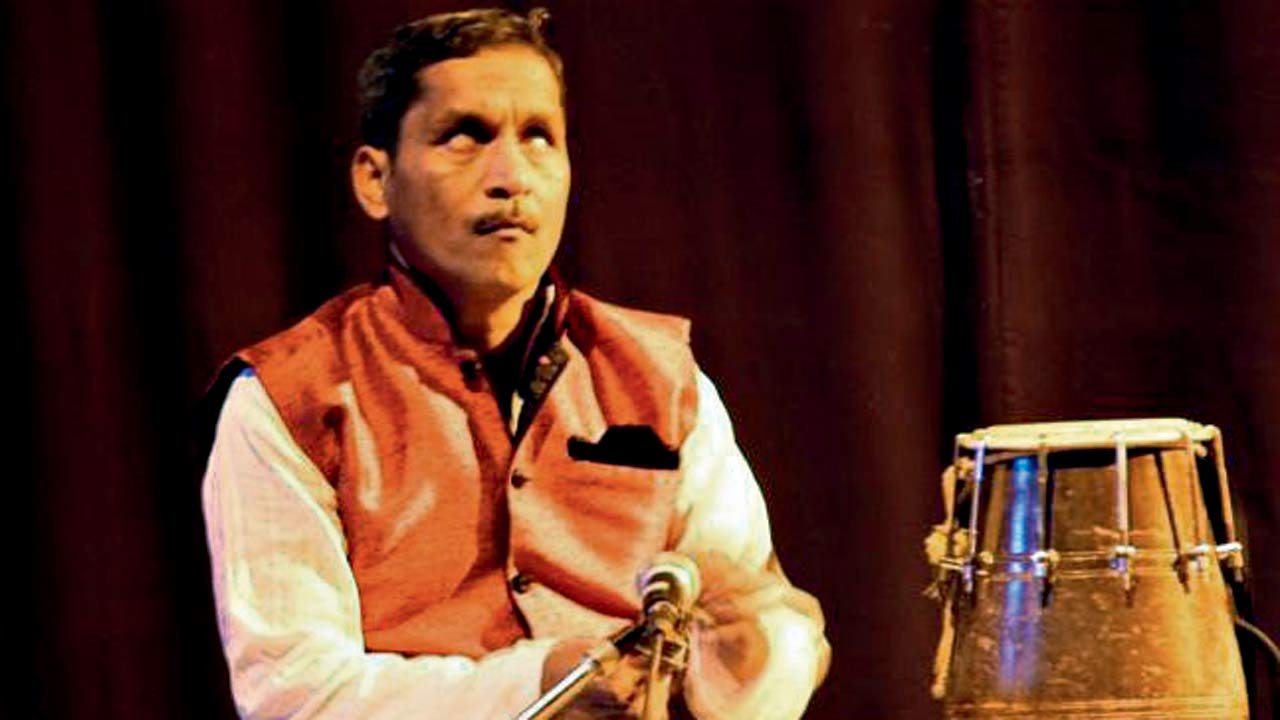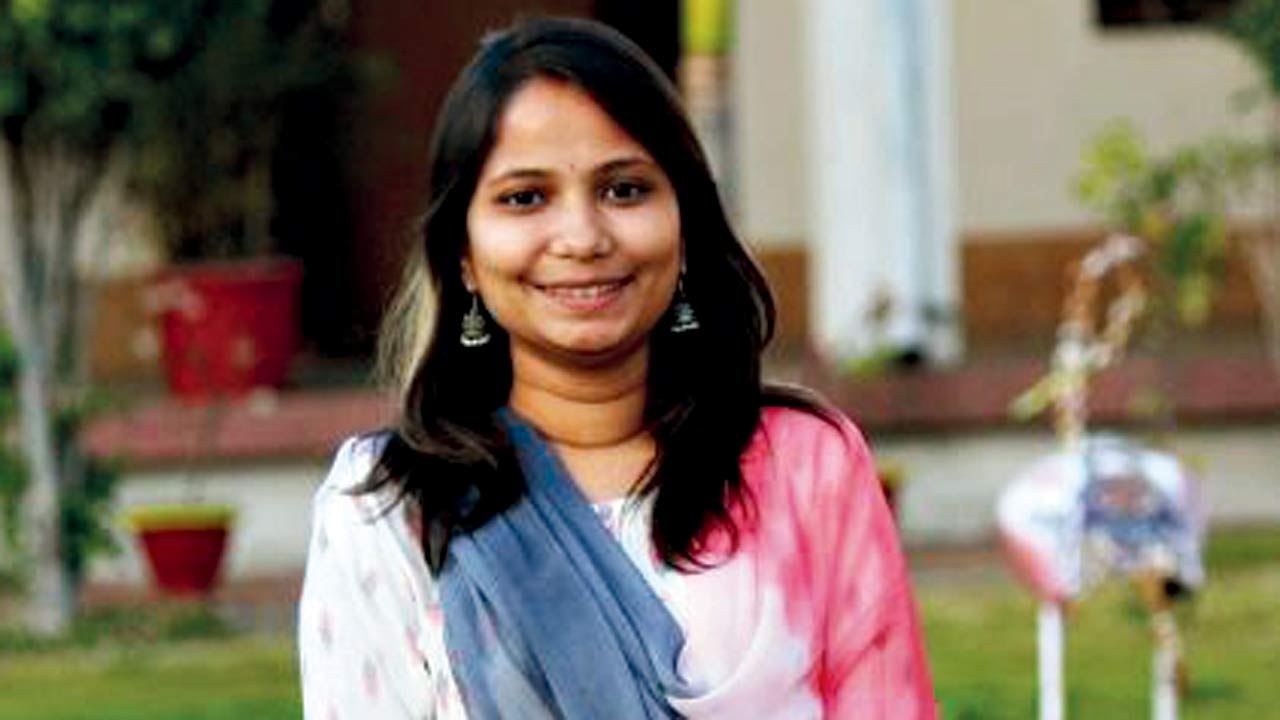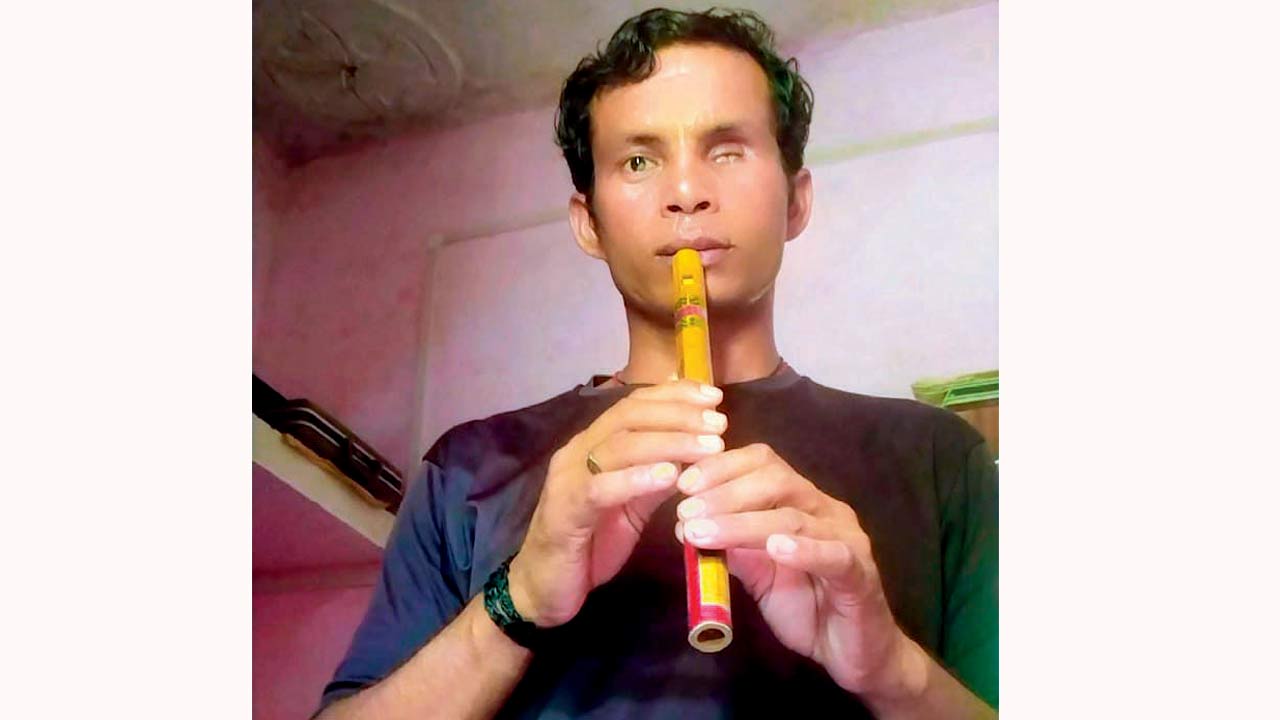The next time you board a local, watch out for these talented differently abled musicians

Irshad Sheikh, a disabled musician, plays his flute amid the chaos of Dadar station. Pic/Ashish Raje
They are often perceived as beggars, but in reality, they are classically trained and custodians of a rich musical legacy,” said Hemlata M Tiwari, founder of Swaradhar, a non-profit organisation that provides a platform for train bards. “Most physically or visually impaired artistes are well-educated and trained formally in music. Moreover, they perform a variety of distinct songs, far from the stereotypically portrayed Pardesi Pardesi or Shirdi-wale Sai Baba.”
ADVERTISEMENT
They’ve entertained your commute, or soothed your wait at platforms, with bhajans, Bollywood hits and bhajans such as Mere jhopdi ke bhaag khul jaayenge toh ram aayenge. Some days, they busk for over eight hours. “When life becomes difficult, playing on the trains is our last resort to fulfil responsibilities,” says Chetan Patil, a dholki player. He is a frequent performer from Swaradhar, and the founder of the band, Surshayri.
 Pradeep Mokashi
Pradeep Mokashi
Music is a core vocational subject in blind schools. “It was a compulsory subject in our school, and I have completed Praveshika Purna [corresponding to the third year of the beginner level in Hindustani Classical music]. Since 2008 or 2009, I have been playing dholki on railway platforms and stations,” adds Patil.
Irshad Sheikh, a flautist and regular busker on Dadar station, says, “I started learning music when I was eight years old and studying at Pragati Andh Vidyalaya, Badlapur. The flute was not part of the curriculum, but Professor Mazar Sheikh taught some of us privately.”
For many, music is an inherent gift. “For a long time, I had no means of livelihood and formal training. With just the blessings of Goddess Saraswati, I started playing the flute and found railways the only place for performance,” says Anupkumar Tiwari, a flautist on the Western line.
 Hemlata M Tiwari
Hemlata M Tiwari
Some happy times, they are “discovered” as they say in the movie biz, and get professional gigs. “I sometimes get Rs 500 as a token of appreciation. Around four months back, a commuter approached me to record for Teri Ungli Pakad Ke Chala [from the 1993 film, Laadla], for which he paid me a great deal,” says Tiwari gleefully. Some have shared the stage with celebrities such as Amitabh Bachchan and Jackie Shroff at events and shows organised by nonprofits and corporates. “At 14, I was abandoned by my family, after which I started playing on railway stations for a living. Since then, I’ve performed for multiple events organised by Swaradhar, Ishaan Humanity Foundation [a now defunct non-profit that provided a platform to the artists], and a Reliance project where I performed alongside Jackie Shroff,” adds Sheikh.
While some demean their talent and think them beggars, there are enough who appreciate them. “They even ask about our whereabouts if we are absent for a day,” adds Patil. This motivates them to pursue their art despite the legal and social obstacles. “We receive a mix of responses from the audiences, including some who have asked me to join an orchestra and some calling me a beggar,” said Pradeep Mokashi, a dholak player, and member of Swaradhar.
 Anupkumar Tiwari
Anupkumar Tiwari
Besides being judged for both their bodies and their art, they are also arrested or thrashed for performing. Yet they hope for an inclusive environment that also respects their art form.
“As handicapped artistes, we hope the police and government make some provisions for us, which will not only give us an artistic platform but also remove the
belittling label ‘beggar’,” Mokashi signs off.
Anupkumar Tiwari
WHERE: Dadar Station and Western Railways
Irshad Sheikh
WHERE: Dadar station
Chetan Patil
WHERE: Central and Western Railways
Pradeep Mokashi
WHERE: Central Railways
 Subscribe today by clicking the link and stay updated with the latest news!" Click here!
Subscribe today by clicking the link and stay updated with the latest news!" Click here!







